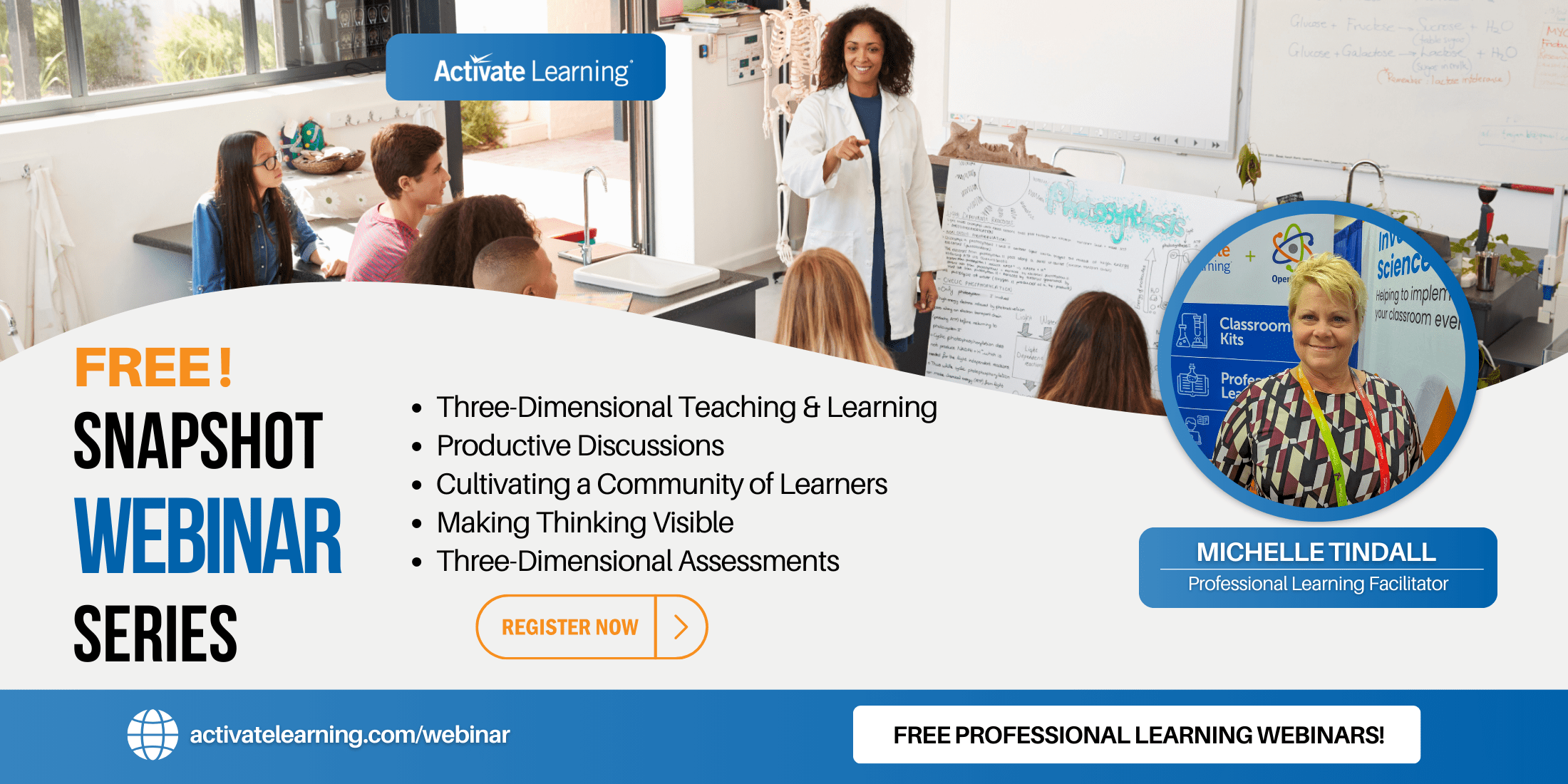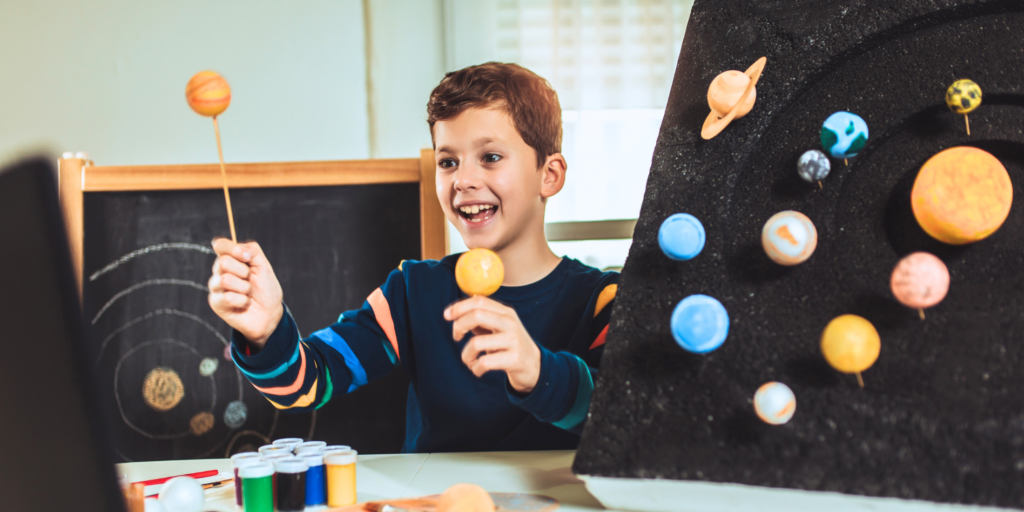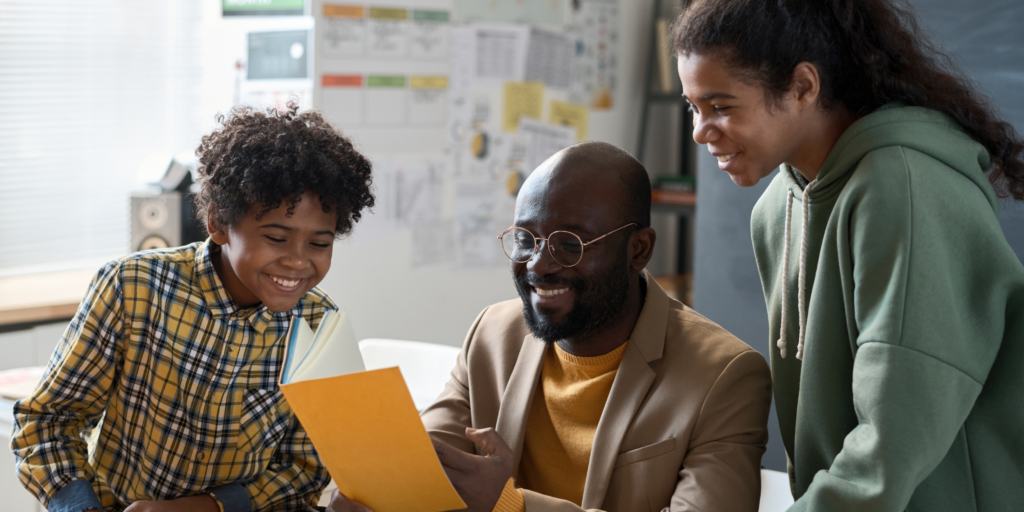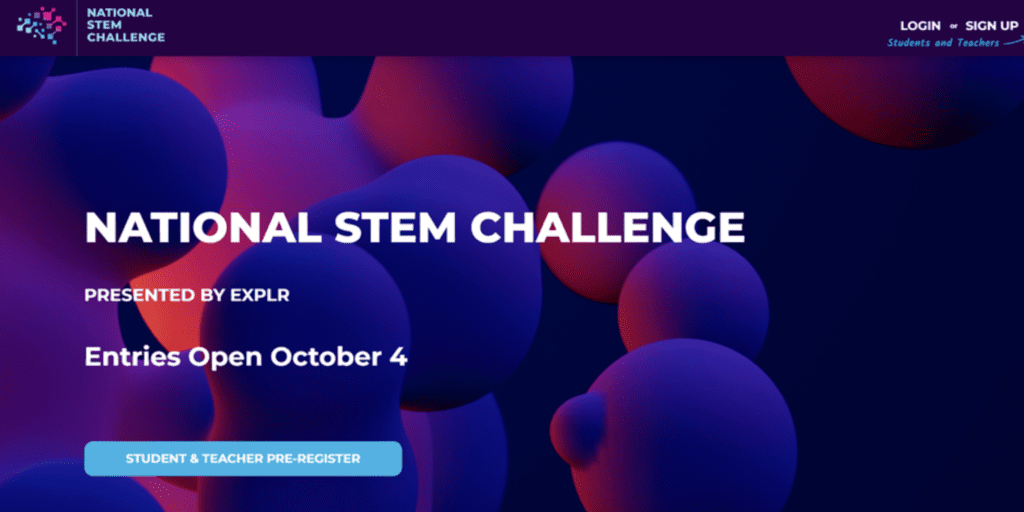Summer Refresh: Power Up Your OpenSciEd Teaching Toolkit with These Awesome Resources 🔋
Summer Refresh: Power Up Your OpenSciEd Teaching Toolkit with These Awesome Resources 🔋
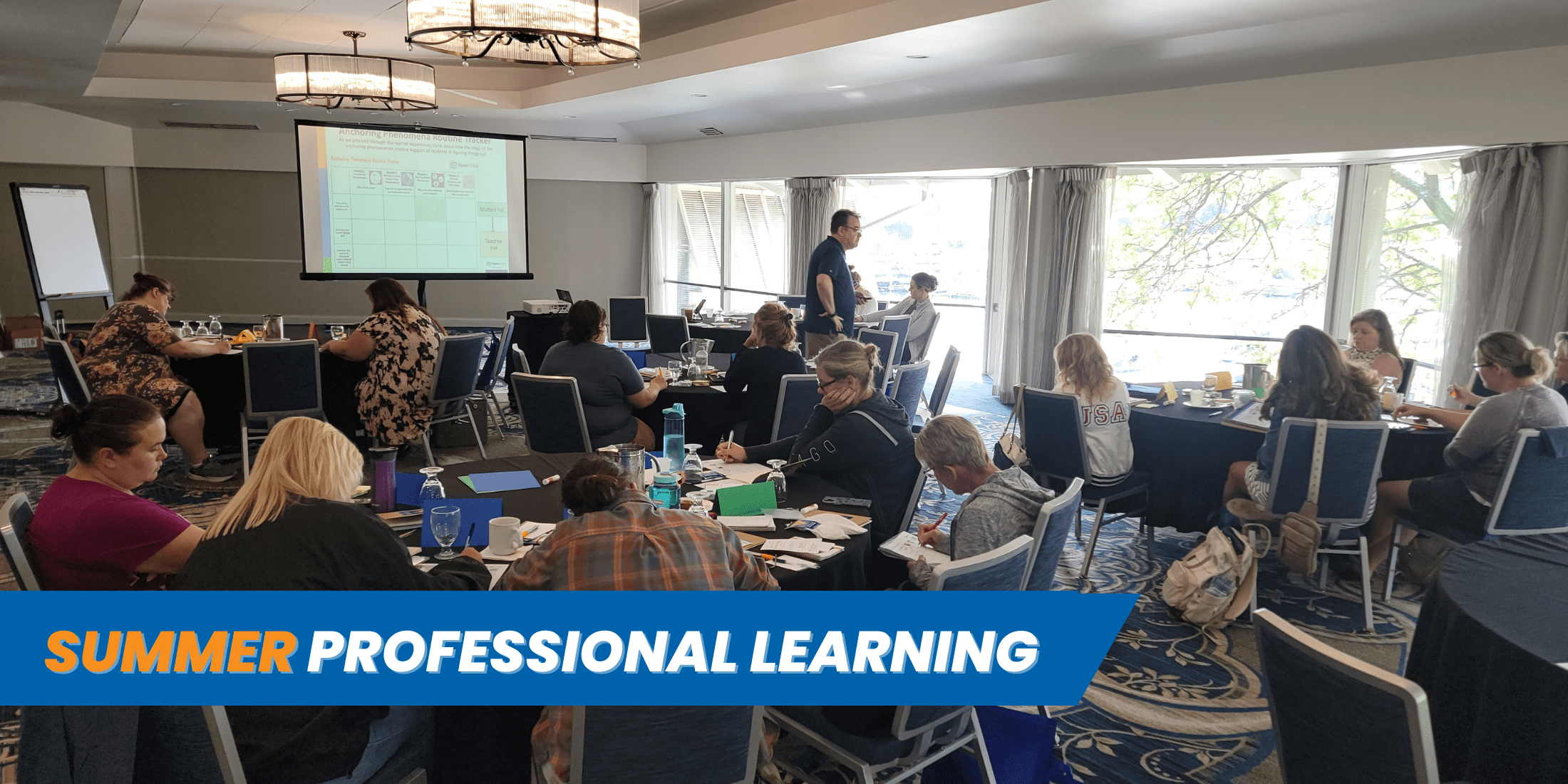
Quick Take: The summer of power-packed professional learning continues! We've curated a list of engaging resources to add to your OpenSciEd teaching toolkit including:
- Must-read books on inquiry-based learning and inclusive education
- Resources to deepen your understanding of Social Emotional Learning (SEL)
- Free courses and webinar replays on leveraging Open Educational Resources (OER)
- Pedagogy on Deck summer video series with insights on implementing OpenSciEd
As you enjoy the last glorious days of summer, dip into these valuable resources to prepare for an exciting new school year!
The summer may be starting to wind down, but there’s still plenty of time to soak up the sun and power up your OpenSciEd professional learning. Don’t worry; Activate Learning’s got you covered! 😎
Last month, we launched a free summer/fall webinar series, Snapshot Webinar Series: Transforming Instruction and Assessment for High School Science, highlighting our innovative strategies for implementing three-dimensional learning in middle and high school settings. You won’t want to miss this hands-on, interactive learning experience, so register for the series today and stay tuned for our webinar recaps!
In this post, we’ve curated an awesome selection of resources that align with OpenSciEd’s innovative approach to science education, including:
- Informative books that offer fresh perspectives and lesson plan ideas
- Thought-provoking films that support social-emotional learning in the classroom
- Comprehensive open science education resources to deepen your understanding and even guide you in publishing your own materials
- Pedagogy on Deck! The summer video series with Brian Klaft offers insights about implementing OpenSciEd in your classroom
Whether you’re looking to refine your OpenSciEd teaching strategies for the new school year or catch up on the latest pedagogical research and developments, there’s something on this list for you! 👍
Three Page-Turning Books Every OpenSciEd Educator Should Read

Enrich your summer professional learning with these books that align with and enhance your OpenSciEd teaching practice. These titles offer fresh perspectives on inquiry-based learning, citizen science, and inclusive education strategies. Here are three must-read books to inspire and inform your approach:
- A More Beautiful Question: The Power of Inquiry to Spark Breakthrough Ideas by Warren Berger (by Warren Berger): This critically acclaimed best-seller explores the transformative power of inquiry in various fields, from business innovation to personal growth. The book emphasizes how asking the right questions can lead to breakthrough ideas and solutions. This aligns perfectly with OpenSciEd's instructional model, which centers on a storyline approach driven by student questions. Just as Berger illustrates how questioning fuels innovation in companies like Google and Netflix, OpenSciEd harnesses student curiosity to advance through unit storylines. The book is a great resource for educators looking to enhance their questioning techniques and foster a more dynamic, curiosity-driven classroom environment. [read more]
- Universal Design Daily: 365 Ways to Teach, Support, & Challenge All Learners Using UDL (by Paula Kluth): Universal Design Daily is a comprehensive guide that offers 365 practical strategies for implementing Universal Design for Learning (UDL) in K-12 classrooms, breaking down complex UDL guidelines into daily, actionable ideas. It covers multiple engagement, representation, and action/expression methods, providing educators with a wealth of options to create inclusive learning environments. The book's format allows teachers to explore one idea per day or use it as a quick reference tool for lesson planning. To learn more about UDL, watch our webinar replay on how OpenSciEd's Anchoring Phenomenon Lessons incorporate the principles of UDL. [read more]
- The Field Guide to Citizen Science: How You Can Contribute to Scientific Research and Make a Difference (by SciStarter): An in-depth introduction to the world of public participation in scientific research, this book by SciStarter explains the concept of citizen science, provides guidance on getting involved in citizen science and staying motivated, and explores how the collected data contributes to scientific knowledge. It features fifty diverse projects spanning topics from climate change to space exploration, offering readers a range of opportunities to engage in real-world scientific endeavors. For OpenSciEd teachers, this guide can be an invaluable tool for enriching student learning and lesson planning. By introducing citizen science projects to students, educators can provide students with authentic scientific experiences, demonstrating how classroom concepts apply to ongoing research. [read more]
Go Deeper with Social Emotional Learning (SEL).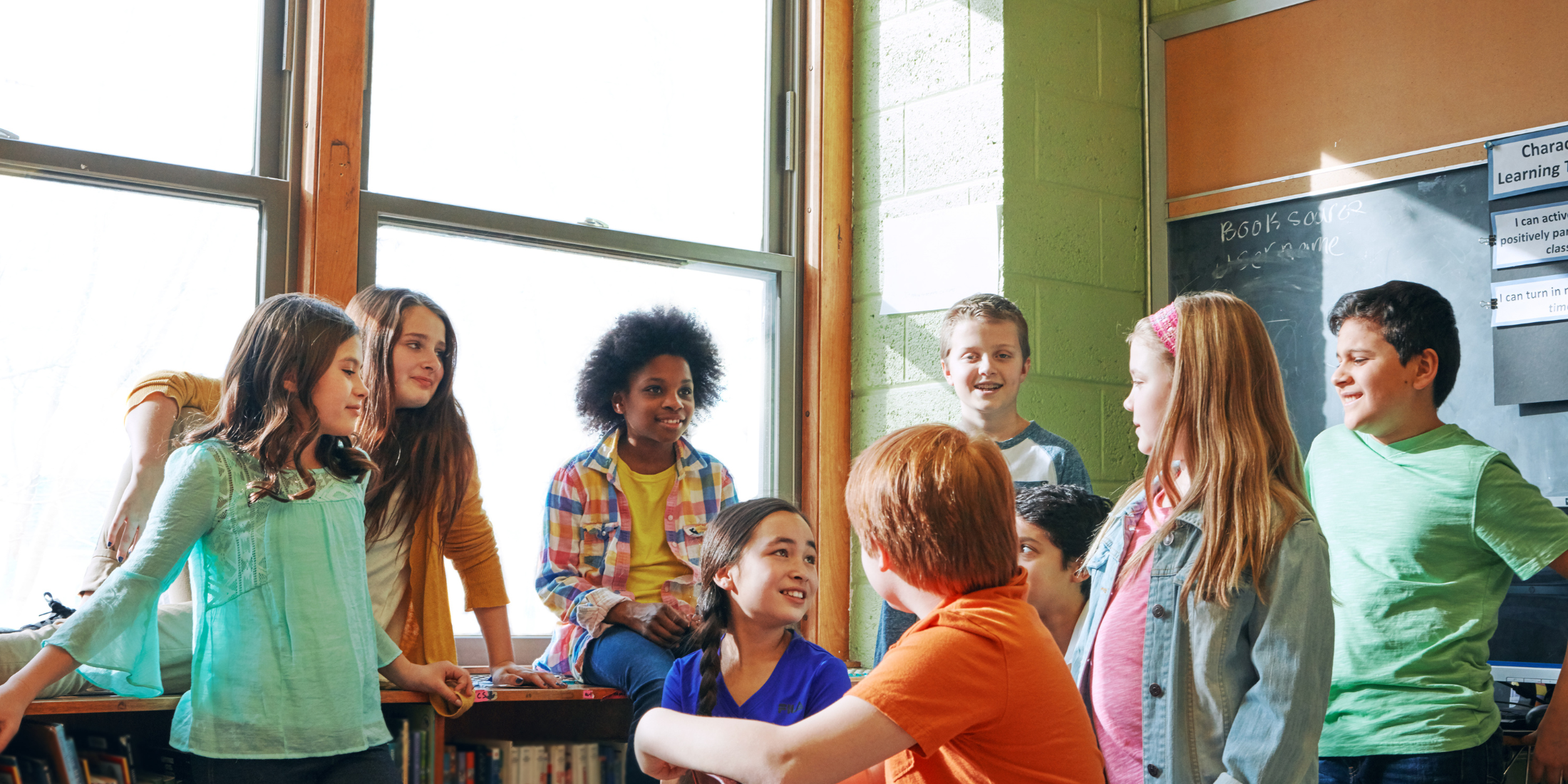
Social Emotional Learning (SEL) is a crucial component of the OpenSciEd approach, fostering a supportive and engaging learning environment. Our recent case study highlights how OpenSciEd’s integration of SEL has profoundly impacted students in Delaware’s Colonial School District. These resources will provide an overview of the SEL landscape and equip you with strategies to enhance your students’ social-emotional skills while deepening their scientific knowledge.
- The Evidence is Clear: An Update on Research Examining Social and Emotional Learning (webinar): This webinar, hosted by Collaborative for Academic, Social, and Emotional Learning (CASEL), presents an update on Social and Emotional Learning (SEL) research, building on a 2011 meta-analysis that showed significant academic benefits of integrated SEL instruction. Dr. Mark Greenberg discusses findings from a new report reviewing a decade of research (12 meta-analyses), further validating SEL's positive impact on student achievement and well-being. The panel discussion, featuring prominent education experts, explores recent research, implications, and future directions for SEL in education. [watch replay]
- Science Fair (documentary): Science Fair is an award-winning documentary that follows nine high school students worldwide competing in the International Science and Engineering Fair. The film showcases the students' journeys, highlighting their challenges, triumphs, and personal growth. It underscores the importance of nurturing students' social and emotional learning, demonstrating how these skills are crucial for academic competitions and future success in the STEM workforce. This inspiring documentary offers educators valuable insights into fostering students' passion for science while supporting their holistic development. [learn more]
- Introduction to Social-Emotional Learning (SEL) (free online course): This edX course provides educators with a foundational understanding of SEL. It focuses on teaching essential interpersonal skills that help students navigate today's complex world. The course covers critical SEL components, including self-awareness, social awareness, self-management, and responsible decision-making. Educators will learn strategies to foster empathy, support relationship-building, and promote student well-being and academic success. This resource offers a great introduction to SEL and practical tools for integrating SEL into educational practices. [learn more]
- The Teacher's Social and Emotional Learning (free online course): This course, presented by the University of Colorado-Boulder, offers a fresh perspective on SEL, shifting the focus from students to teachers. It emphasizes the importance of teachers' emotional well-being and competence. It allows educators to reflect on and develop their SEL skills to enhance teaching effectiveness and personal growth. [learn more]
Embrace Open Science and Open Educational Resources.
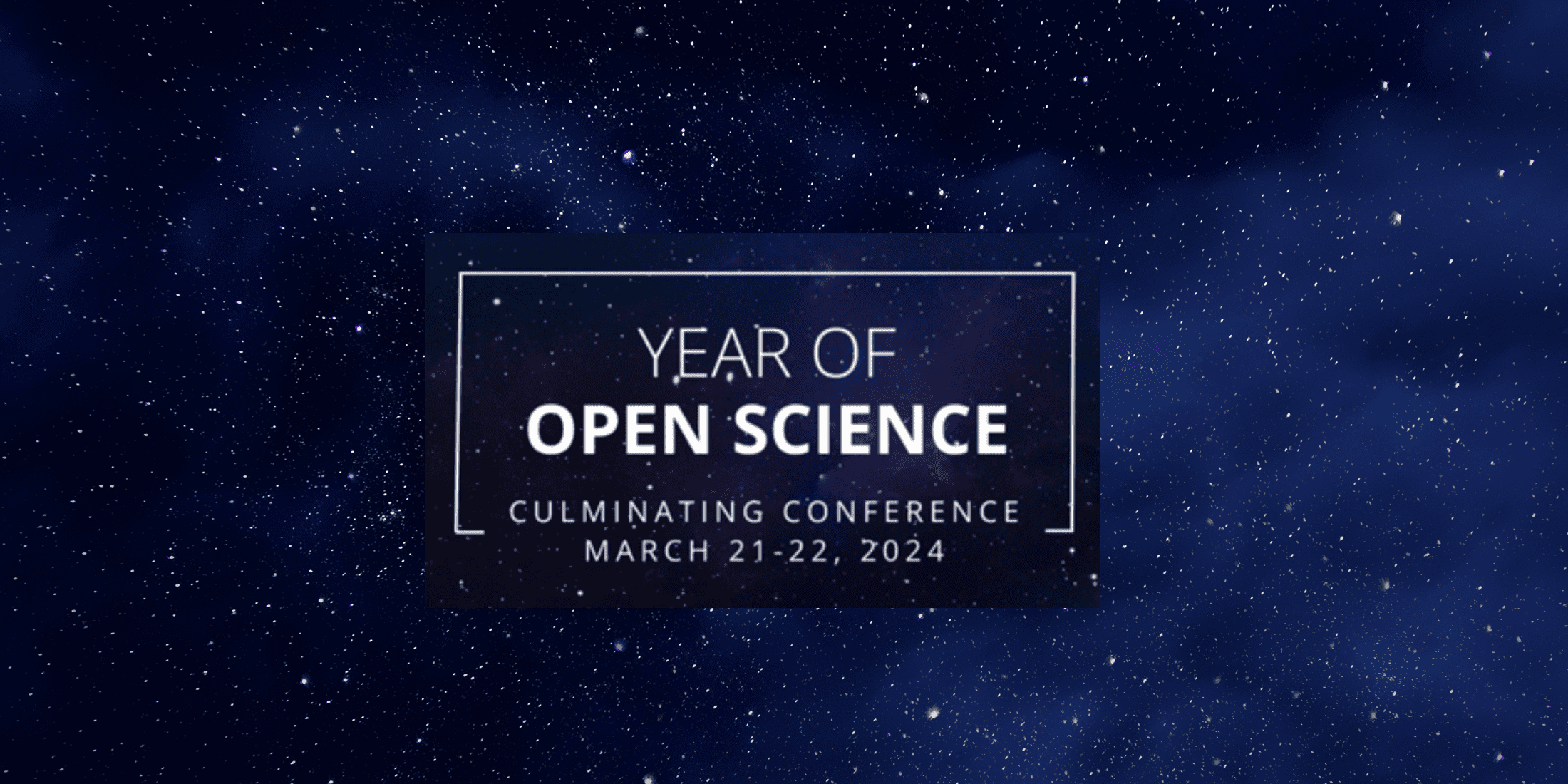
As an open educational resource, OpenSciEd embodies the principles of free, adaptable, and high-quality science education for all. Exploring open science and open educational resources can deepen your understanding of this approach and enhance your teaching practice. These resources offer insights into the fast-developing collaborative nature of scientific discovery and the democratization of knowledge. By engaging with these materials, you'll gain valuable perspectives on acquiring, developing, and leveraging open resources in your classroom, fostering a more inclusive and innovative learning environment aligned with OpenSciEd's mission.
- Designing with Open Educational Resources (OER) (free online course): Learn how to effectively integrate Open Educational Resources (OER) into your teaching and how to contribute to the OER ecosystem with this comprehensive free online course. It covers the basics of Open Education, Creative Commons attributions, and the process of designing and publishing OER. You'll explore how to identify learning gaps, evaluate existing resources, and create customized instructional materials. This course includes hands-on activities for remixing and designing OER using free online tools, making it accessible to all educators. For OpenSciEd teachers, this course offers valuable insights into leveraging and contributing to the open education ecosystem. [learn more]
- Year of Open Science Conference 2024: Initiatives and Achievements Realized and Where to Next (video replays of all sessions): Access over 30 video sessions from the Year of Open Science Conference 2024, hosted by the Center for Open Science (COS) and NASA. This no-cost, online conference held on March 21-22, 2024, highlighted the outcomes and ongoing efforts of the 2023 Year of Open Science initiative. Learn about the collaborative work of federal agencies, universities, and international organizations to advance open science practices inspired by global commitments and critical policy shifts. [watch replays]
- Gen AI and Open Educational Resources in Teaching and Learning (webinar): This interactive online workshop, hosted by the University of British Columbia's Center for Teaching, Learning & Technology, explored the challenges, contradictions, and opportunities at the intersection of Artificial Intelligence (AI) and Open Educational Resources (OER). The session covered AI's potential in generating dynamic content, including interactive textbooks, and its role in developing OER. It also included discussions on the legal and ethical considerations of both AI and open education, such as copyright, privacy, and open licensing. Participants engaged in practical exercises, including co-creating a textbook chapter and demonstrating the real-world application of AI in OER. [watch replay]
Pedagogy on Deck! Summer Video Series with OpenSciEd Teaching Resources and Insights
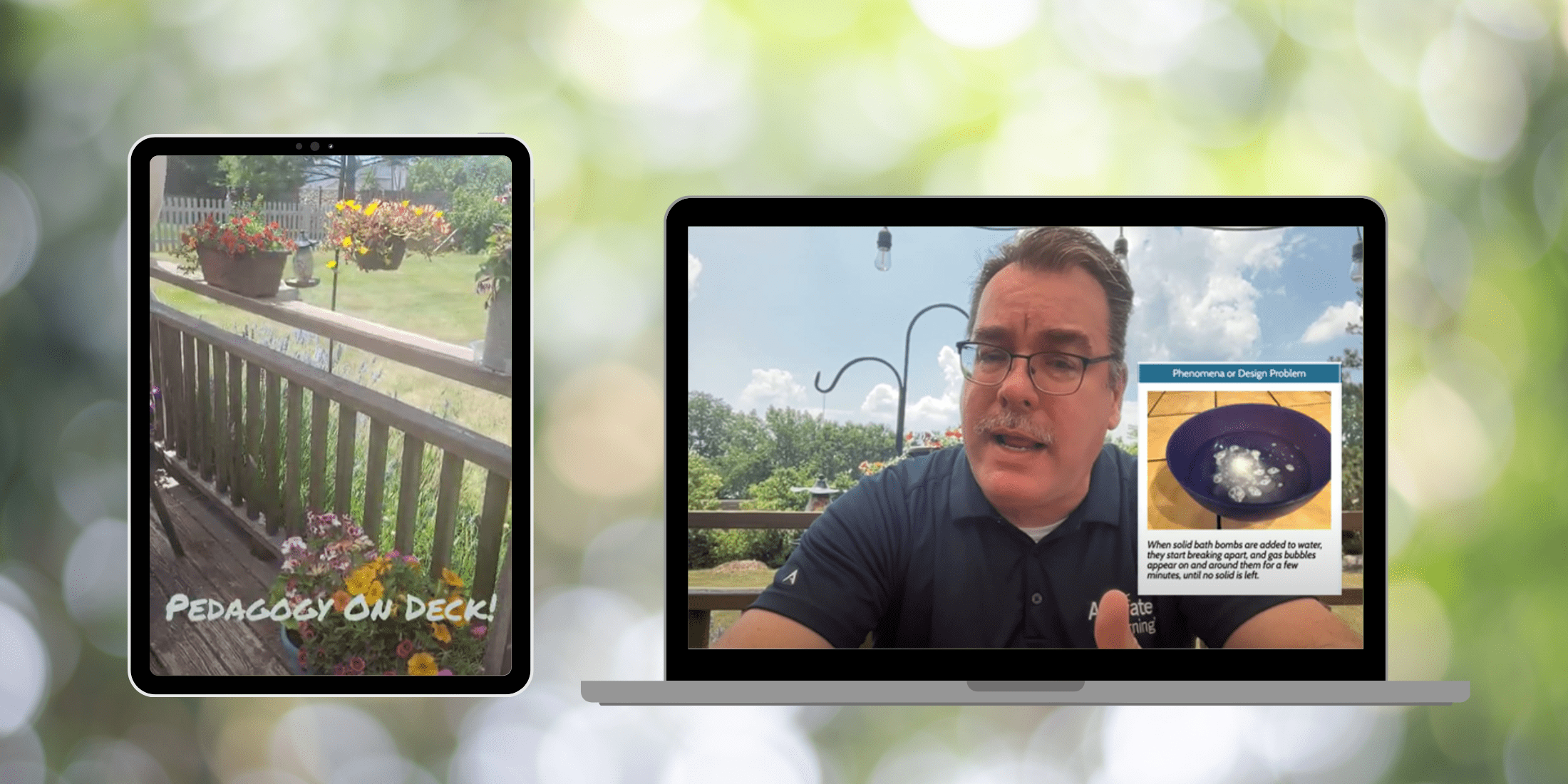
This summer, follow Activate Learning on social media to catch the Pedagogy on Deck video series featuring Brian Klaft!🌟
In these short videos, Brian offers insights on implementing three-dimensional learning and OpenSciEd in the classroom. Topics include discussion types and scientist circles, as well as a number of instructional approaches that are important to science teachers. Brian will also dive into preparing for some OpenSciEd lessons, including time-saving tips for making bath bombs and light boxes.
Follow Activate Learning on social media to catch the Pedagogy on Deck video series! 🌻🌷
X / Twitter: Activate Science
Instagram: Activate Learning
Facebook: Activate Learning
LinkedIn: Activate Learning
YouTube: Activate Learning
Bring on the New School Year! 🚀
As summer winds down, take advantage of these valuable resources to power up your professional learning and prepare for the new school year. With insightful books, thought-provoking films, free courses, and informative webinars, you'll find plenty of inspiration and practical ideas to enhance your OpenSciEd teaching toolkit. Enjoy the last days of summer and prepare to inspire your students with fresh perspectives and innovative approaches to science education.
* * * * * *

